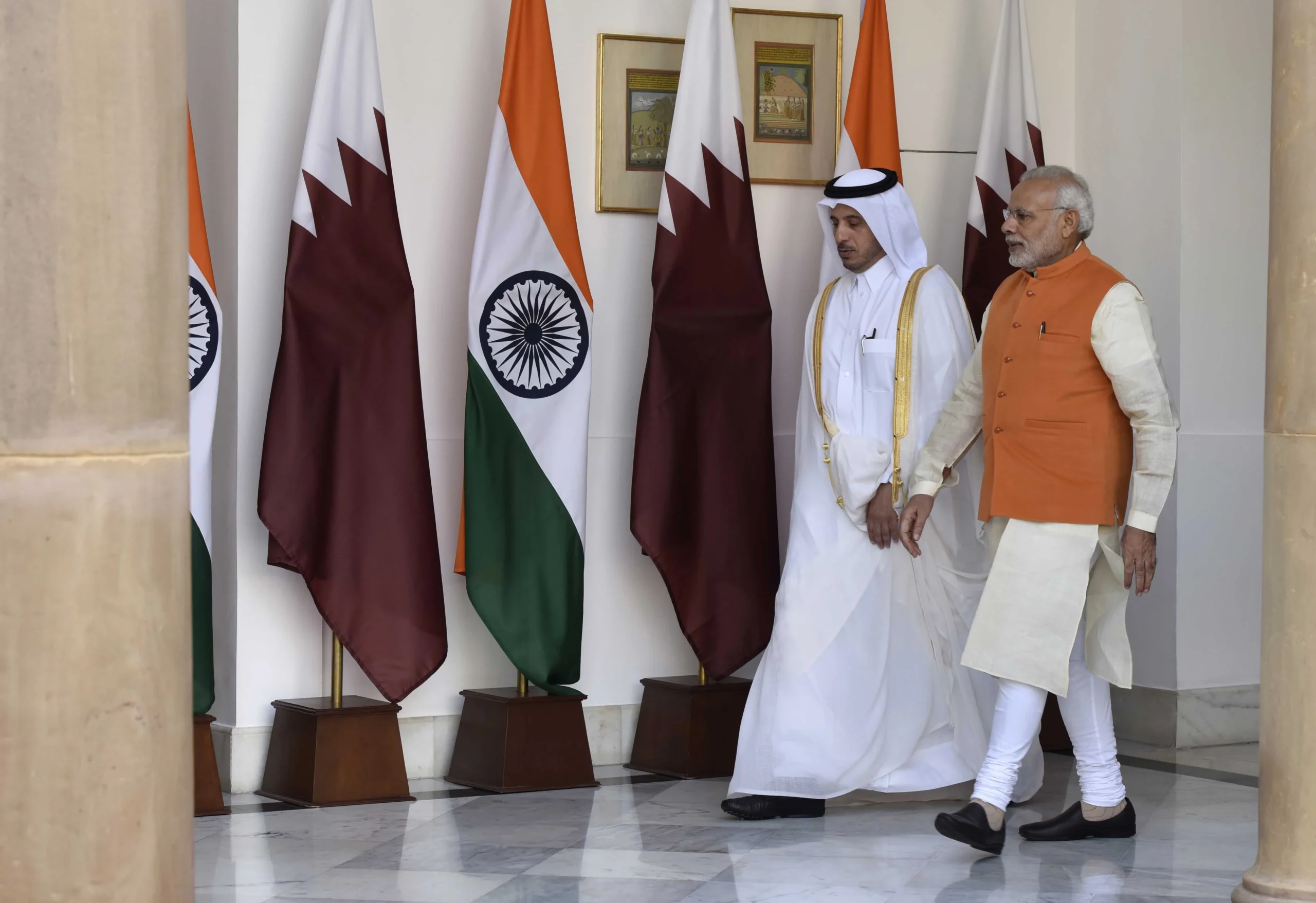The India-Qatar spy case has cast a spotlight on concerns surrounding the potential misuse of economic prowess to shield covert operations, particularly highlighted by the recent release of nine Indian spies detained in Qatar. Amid India’s impressive economic growth, there’s a palpable tension between its rising global standing and the fear of exploitation for covert endeavors. This incident prompts a deeper examination of the delicate balance between economic influence and intelligence activities, shedding light on the complexities of navigating modern geopolitics.
India’s Economic Rise
India’s economic trajectory has been remarkable, witnessing a steady rise in its GDP, foreign direct investment (FDI), and share in the global trade volume. As of 2023, India stands as the world’s fifth-largest economy and contributing significantly to global economic growth. This economic heft develops significant leverage in international relations, affording emerging prowess like India, greater bargaining space and influence in comparison to other nations. This growth has led to increased global influence, reflected in its membership of G20, BRICS, SCO, IMEC, QUAD, QUAD plus and I2U2. India’s strategic partnerships extend across continents, with significant economic ties to countries like the United States, Russia, Japan, Australia and the European Union. In the Middle East, UAE, KSA and Qatar stand as a crucial partners. Only with Qatar, India’s bilateral trade exceeds USD $15 billion. This economic interdependence forms the backdrop against which this India-Qatar spy case unfolds.
Accusations of Espionage and Assassination
Despite its economic achievements, India has been extensively engaged in covert operations abroad and this trend has increased in the recent years.
In 2023, The Intercept published a leaked Indian intelligence report detailing plans for espionage and influence operations in various countries. This report, dubbed “Project Bluebird,” outlining the activities, which ranged from gathering intelligence on individuals critical of the Indian Government to carrying out assassination attempts. Among the targeted individuals were academics, journalists, and activists residing in Canada, the United States, and the United Kingdom.
The Intercept report wasn’t the only source of concern. In 2023, Hardeep Singh Nijjar, a Canadian Sikh activist critical of the Indian Government, was shot dead in his Surrey, British Columbia at his home. Canadian authorities are investigating the possibility of a target killing, linked to his activism. Similarly, Avtar Singh Khanda, a UK-based Sikh separatist leader, died under mysterious circumstances in Birmingham just days before Nijjar’s assassination. While the official cause of death was listed as acute myeloid leukemia, his supporters suspect slow poisoning as cause of death, citing his vocal opposition to the Indian Government and reports of prior harassment.
In January 2024, the Pakistani Ministry of Foreign Affairs presented a comprehensive case to media pointing extensive Indian covert activities on Pakistani soil. These accusations included activities of espionage, sabotage, and support for separatist movements within Pakistan.
The Qatar Spy Case and its Implications
In January 2023, Qatari authorities apprehended nine Indian nationals working for Dahra Global Technologies and Consulting Services, on charges of espionage for Israel. The case garnered significant attention due to its implications for India-Qatar relations, which are characterized by extensive economic ties. Notably, in December 2023, both nations signed a long-term deal worth tens of billions of dollars for the supply of Qatari liquefied natural gas to India until 2048, highlighting their economic interdependence. In February 2024, India signed its biggest ever USD 78 billion deal to extend LNG imports from Qatar by another 20 years till 2048 at lower than current rates.
Following the arrest, the Indian Government lobbied extensively for the release of the accused spies. The case took a surprising turn when Qatar, after initially imposing death sentences, abruptly released the individuals and repatriated them to India in February 2023. The lack of transparency surrounding the release and the swiftness of the decision fueled speculation that economic considerations, particularly the aforementioned gas deal, played a significant role in Qatar’s decision. This incident raises concerns about the shield covert operations from legal consequences.
Modi’s Visit to Qatar
Following the release of the nine Indian spies from Qatar in February 2023, Prime Minister Narendra Modi embarked on a two-day visit to Doha later that month. This visit, though pre-planned and coinciding with the release, fuels further speculation about a potential connection between the two events. While official statements attributed the visit to strengthening the historically close ties between India and Qatar, particularly focusing on economic and energy partnerships, the timing and lack of transparency regarding the spy release cast a shadow on its intentions. Critics saw it as an attempt to acknowledge Qatar’s role in the release without directly confirming any economic leverage. It remains to be seen whether this incident will have lasting implications for India’s international image and its approach to international relations.
Conclusion
The Qatar spy case serves as a stark reminder of the dangers associated with weaponizing economic power for shielding the covert operations. It also underscores the need for greater transparency and accountability in international relations, particularly regarding intelligence gathering activities. This trend, if remains unchecked, will set a dangerous precedent. The world must checkout.
The opinions shared in this article reflect the author’s personal views and do not necessarily align with the institution’s official stance.




